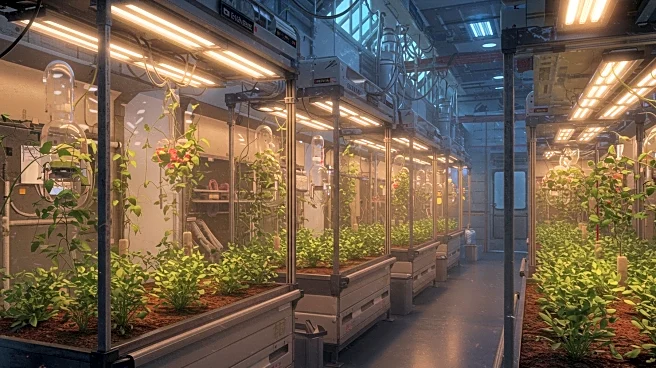What is the story about?
What's Happening?
Experts are increasingly turning to genetic modification as a solution to maintain global food supplies threatened by rising temperatures. As heat records continue to be shattered worldwide, critical crop production areas are facing challenges. Photosynthesis, essential for plant energy, ceases at temperatures between 104 to 113 degrees, leading to reduced harvests of key crops like wheat, maize, and barley. Genetic modification offers a way to enhance crop resilience against these extreme conditions, with researchers exploring modifications to enzymes and plant structures to better withstand heat.
Why It's Important?
The impact of rising temperatures on crop production is significant, with reductions in harvests posing a threat to global food security. Genetic modification could provide a vital tool in ensuring staple crops can survive in increasingly harsh climates. This approach not only aims to secure food supplies but also addresses the broader issue of hunger affecting millions worldwide. By developing heat-resistant crops, scientists hope to mitigate the effects of climate change on agriculture, potentially reducing the reliance on harmful pesticides and improving food safety.
What's Next?
While some genetic modifications are already in use, such as insect-resistant corn, further developments are needed to create crops tailored to future climates. Researchers are working on intricate genetic edits, though these advancements may take years to fully develop. Continued experimentation and testing are essential to ensure the safety and effectiveness of genetically modified crops. As the planet continues to warm, the urgency to develop these solutions grows, with potential implications for farm labor and overall agricultural productivity.
















